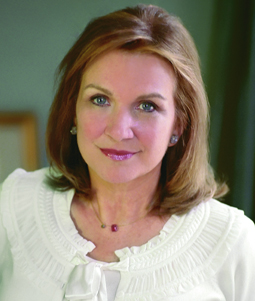For a couple of years now, I’ve been interested in the concept of “change your story, change your life” — that if you are unhappy with the story you’re living, you may be able to envision a better story, change your life, and live that new story. Many practitioners work with a similar concept, including a new discovery, Lisa Bloom, The Story Coach, who writes on her site: “At Story Coach we look closely at the narrative, we examine the stories we choose to tell.” My take on this concept is still evolving, still a germ of an idea. A partner and I hope to develop the concept into workshops in the future.
But what if you love the story you are living, and something awful happens to change the story? What if it’s something completely out of your control?
On audiobook, I recently listened to Elizabeth Edwards book Resilience, which she herself recorded for the audio version. Here is someone who absolutely loved the story she was living. She had an idyllic life, until not one, but three, unspeakable things happened to shatter her story.
The first was the death of her son Wade in a car accident at age 16. Her reflections on his life and death occupy a large portion of the book.
The next was her diagnosis with breast cancer — not so devastating at first because she assumed she would not die of the disease — but later shattering because her cancer metastasized and was pronounced incurable. She now knew she would likely die from the disease and might never see her young children grow up or hold her grandchildren.
In between the first and second cancer shockers, she learned her husband John had had an affair. A year later, she learned the indiscretion had been far more than the one-night-stand he initially revealed to her.
In the book, Edwards repeatedly talks of longing for her old story while accepting that she is living in a new and diminished story.
With her husband’s infidelity alone, she might have had hope that she could return to her old story or that the two of them could weave a new story — possibly even a better story.
A few years ago, I experienced a crisis in my own marriage that was terribly painful and took a long time to recover from. But I would have to say that the story my husband and I are living now is far better than the story we were living before the crisis. I am not ready to say the crisis was a blessing in disguise — even though our story is superb now — because I still would have preferred that the rift had not occurred.
But with the death of a child or your own death sentence, there seems virtually no hope of a better story. Yes, there may be some acceptance, grace, lessons learned, and yes, resilience, but your story, it seems, will be different and not better.
Yes, we have a lot of choices about the stories we live. But I am wrestling with how to deal with the stories about which we have no choices and that offer virtually no hope of living a story that’s better — or even anywhere nearly as good — as we had. Bloom writes: “We CAN choose new stories, better stories!” Sadly, I think there may be some situations in which we can’t.
